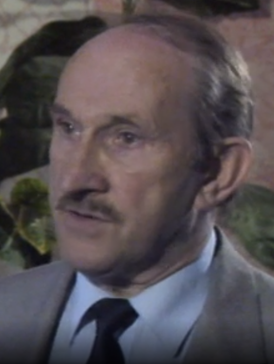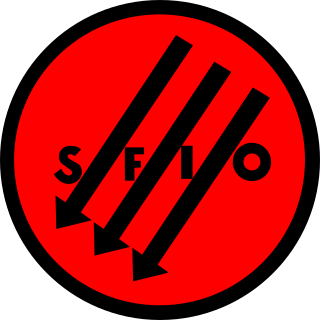Related Research Articles

Trotskyism is the political ideology and branch of Marxism developed by Ukrainian-Russian revolutionary Leon Trotsky and some other members of the Left Opposition and Fourth International. Trotsky self-identified as an orthodox Marxist, a revolutionary Marxist, and Bolshevik–Leninist, a follower of Marx, Engels, and 3L: Vladimir Lenin, Karl Liebknecht, and Rosa Luxemburg. He supported founding a vanguard party of the proletariat, proletarian internationalism, and a dictatorship of the proletariat based on working-class self-emancipation and mass democracy. Trotskyists are critical of Stalinism as they oppose Joseph Stalin's theory of socialism in one country in favour of Trotsky's theory of permanent revolution. Trotskyists criticize the bureaucracy and anti-democratic current developed in the Soviet Union under Stalin.

The Independent Labour Party (ILP) was a British political party of the left, established in 1893 at a conference in Bradford, after local and national dissatisfaction with the Liberals' apparent reluctance to endorse working-class candidates, representing the interests of the majority. A sitting independent MP and prominent union organiser, Keir Hardie, became its first chairman.

The Communist International (Comintern), also known as the Third International, was a Soviet-controlled international organization founded in 1919 that advocated world communism. The Comintern resolved at its Second Congress to "struggle by all available means, including armed force, for the overthrow of the international bourgeoisie and the creation of an international Soviet republic as a transition stage to the complete abolition of the state". The Comintern was preceded by the 1916 dissolution of the Second International.
James "Jock" Ritchie Haston (1913–1986) was a Trotskyist politician and General Secretary of the Revolutionary Communist Party in Great Britain.
The League for Socialist Action was a Trotskyist organization in Canada. It was known by several names throughout its history, including the International Left Opposition (Trotskyist) of Canada, the Workers Party of Canada, the Socialist Policy Group, the Socialist Workers League, the Revolutionary Workers Party, The Club, the Socialist Education League and the Socialist Information Centre.

James "Jimmie" Simpson was a British-Canadian trade unionist, printer, journalist and left-wing politician in Toronto, Ontario. He was a longtime member of Toronto's city council and served as Mayor of Toronto in 1935, the first member of the Cooperative Commonwealth Federation to serve in that capacity. He was also a member of the Orange Order in Canada.

Revolutionary Socialist Party (RSP) is a communist party in India. The party was founded on 19 March 1940 by Tridib Chaudhuri and has its roots in the Bengali liberation movement Anushilan Samiti and the Hindustan Socialist Republican Army.
Revolutionära Socialistiska Partiet, a Swedish political party founded in 1945, as the Independent Labour Party. It was founded by a group that had split from the Left Socialist Party (VSP), when VSP had developed in a pro-Western direction. Leaders included Evald Höglund and Gottfrid Nyberg.
The International Revolutionary Marxist Centre was an international association of left-socialist parties. The member-parties rejected both mainstream social democracy and the Third International.

The Revolutionary Socialist Party was a Dutch socialist political party, that has been variously characterized as Trotskyite and syndicalist. In 1935 it merged with the Independent Socialist Party (OSP) to form the Revolutionary Socialist Workers' Party, but most of the former OSP members left the united party the same year. Henk Sneevliet was the RSP/RSAP's undisputed leader throughout its existence, as well as its only Representative.

The Communist League was a small far-left organisation in the United Kingdom which existed during the year of 1919. Its stated goal was to establish a network of workers' councils that would "resist all legislation and industrial action directed against the working class, and ultimately assuming all power, establish a working class dictatorship".
The United Socialist Movement (USM) was an anarcho-communist political organisation based in Glasgow. Founded in 1934 after splitting from the Anti-Parliamentary Communist Federation, the USM initially aimed to unite revolutionary socialists into an anti-fascist alliance and played a role in the early discussions on the founding of a "Fourth International". During the Spanish Civil War, it shifted its policies away from unconditional anti-fascism towards a revolutionary anti-militarism, which going into World War II led the USM into attempting to form a "Socialist-Pacifist alliance" and even collaborating with some reactionary elements in their opposition to the war. After the war, left with only a small old guard of anarchists and anti-parliamentarists, the USM again shifted its focus towards abstentionism, running unsuccessfully in a number of elections before its eventual dissolution in 1965.
The Socialist Party of British Columbia (SPBC) was a provincial political party in British Columbia, Canada, from 1901 to 1905. In 1903, the SPBC won seats in the Legislative Assembly of British Columbia.
This article gives an overview of socialism in the Netherlands, including communism and social democracy. It is limited to communist, socialist, social democratic, and democratic socialist parties with substantial support, mainly proved by having had a representation in parliament. The sign ⇒ means a reference to another party in that scheme.

Matthew Merrigan was an Irish socialist and trade unionist from Dublin, known for his catchphrase "Profits are wages that have not been distributed yet."
The French Turn was the name given to the entry between 1934 and 1936 of the French Trotskyists into the French Section of the Workers' International. The French Turn was repeated by Trotskyists in other countries during the 1930s.

The French Section of the Workers' International was a political party in France that was founded in 1905 and succeeded in 1969 by the modern-day Socialist Party. The SFIO was founded during the 1905 Globe Congress in Paris as a merger between the French Socialist Party and the Socialist Party of France in order to create the French section of the Second International, designated as the party of the workers' movement.

The Revolutionary Workers League (RWL) was a radical left group in the United States, lasting from 1935 through 1946. It was led by Hugo Oehler and published The Fighting Worker newspaper.

Edward Grant was a South African Trotskyist who spent most of his adult life in Britain. He was a founding member of the group Militant and later Socialist Appeal.
References
- 1 2 3 4 5 Mark Shipway Obituary: William Campbell Tait (1910/11–1994), Revolutionary History vol5/no4
- 1 2 3 4 5 List of contents of Tait & Watson Archive, University of Stirling
- 1 2 3 4 5 Martin Upham VIII: UNITY (1936-1938) Archived 9 May 2008 at the Wayback Machine in The History of British Trotskyism to 1949 September 1980, hosted at Revolutionary History
- ↑ The British Revolutionary Socialist, 1934-1936, Modern Records Centre, Warwick University: "Official organ of the Revolutionary Socialist Party (British Section of the International Socialist Labour Party). Incorporating The Proletariat."
- ↑ The British Revolutionary Socialist, no.11, Aug 1934